
Note: This article contains spoilers
Cannes Golden Camera winner Chen Zheyi directed it, starring Zhou Dongyu, Liu Haoran, and Qu Chuxiao. This year's Cannes Film Festival "A Kind of Concern" was shortlisted for the film... "Burning Winter" has always been very popular. However, when the film premiered on Qixi Festival, the box office and word-of-mouth were both much lower than expected. You can't simply attribute the problem to "literary films", and don't blame the audience for their low level and incomprehension. With such a lineup, the film has a strong commercial element, not to mention that there are not a few blockbuster literary films. What's the problem?

Burning Winter poster
Looking back at Chen Zheyi's creative experience, he is very good at portraying the relationship between people. In two well-received films with distinct Chinese elements, "Parents Are Not Home" and "Tropical Rain", Chen Zheyi conducts delicate and subtle discussions on sensitive relationships: the relationship between a boy and a nanny after his parents are not at home; Chinese In the extracurricular tutoring of the class, the relationship between the male student and the female teacher...
After the premiere at the Cannes Film Festival, when key words such as passionate drama and threesome came, many people thought that "Burning Winter" still focused on "relationships". This is a misunderstanding.
Haofeng (played by Liu Haoran), a financial man working in Shanghai, went to a border town in Yanji, Jilin Province to attend a wedding, and met Nana (played by Zhou Dongyu), a young tour guide. Nana introduces Haofeng to her chef friend Han Xiao (played by Qu Chuxiao). In just a few days, the three confused young people established a close relationship, and then they went their separate ways.

Nana (Zhou Dongyu)
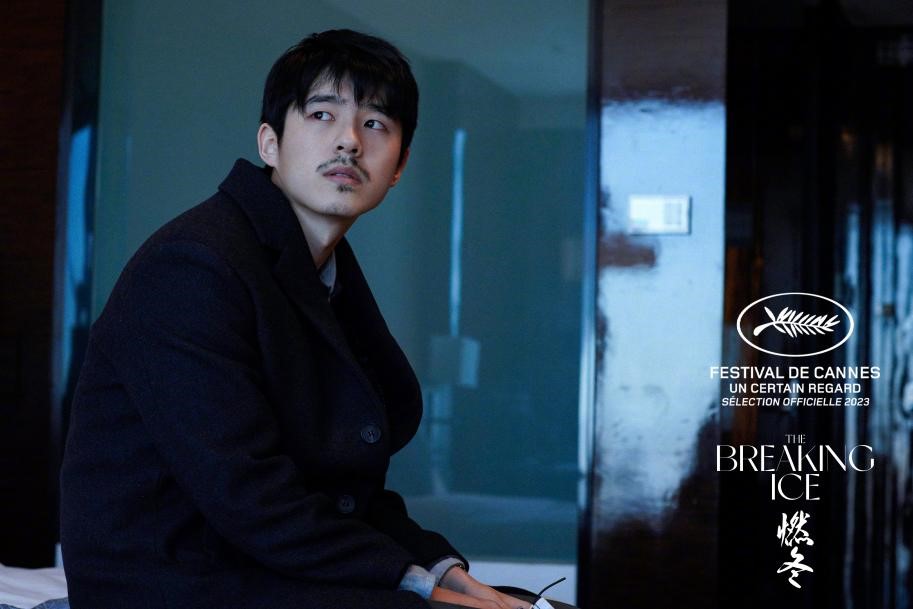
Haofeng (Liu Haoran)
He loves her, she loves him, who loves whom? Such words in the trailer can easily make the audience think that this is a "love triangle" threesome movie. Before "Burning Winter", there were actually many classic movies focusing on the theme of threesomes, such as "Ancestor and Zhan", "Dream of Paris", "Burning", and "Your Bird Can Sing". They all explored the very complicated and subtle relationship between three people. On this basis, it further reveals the state of people or the state of the times.
"Burning Winter" looks like a threesome in form: Haofeng and Nana have physical passion, Han Xiao likes Nana, and Nana just treats Han Xiao as a buddy... In fact, the movie does not entangle Haofeng and Nana too much The "jealousy" between Han Xiao; as for the "two gays and one les" that some viewers imagined, judging from the information given in the movie, it is a bit over-interpreted.
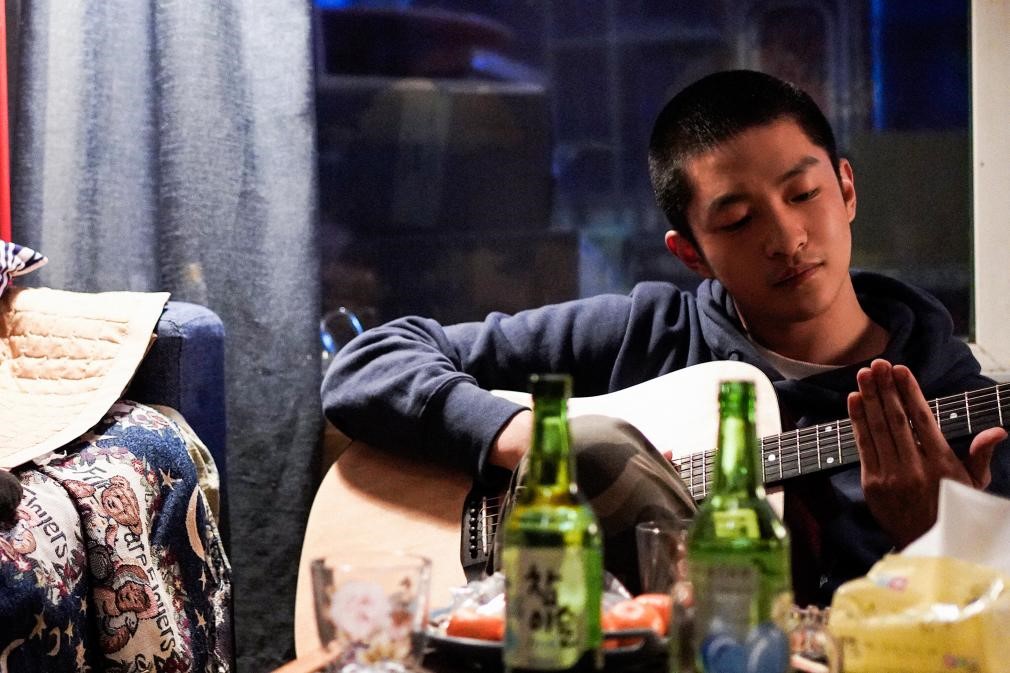
Han Xiao (played by Qu Chuxiao)
In other words, in "Burning Winter", Chen Zheyi gave up his original focus on sensitive "relationships"-Han Xiao and Haofeng did not become hostile because they loved the same person, and Nana did not fall into a trap because of choosing him or choosing him. Tangled in pain. Therefore, "Burning Winter" is essentially different from those famous threesome movies before. This time, Chen Zheyi is not more concerned about "relationship" but "status". He tries to grasp and describe the mental state of contemporary Chinese young people through these three young people.
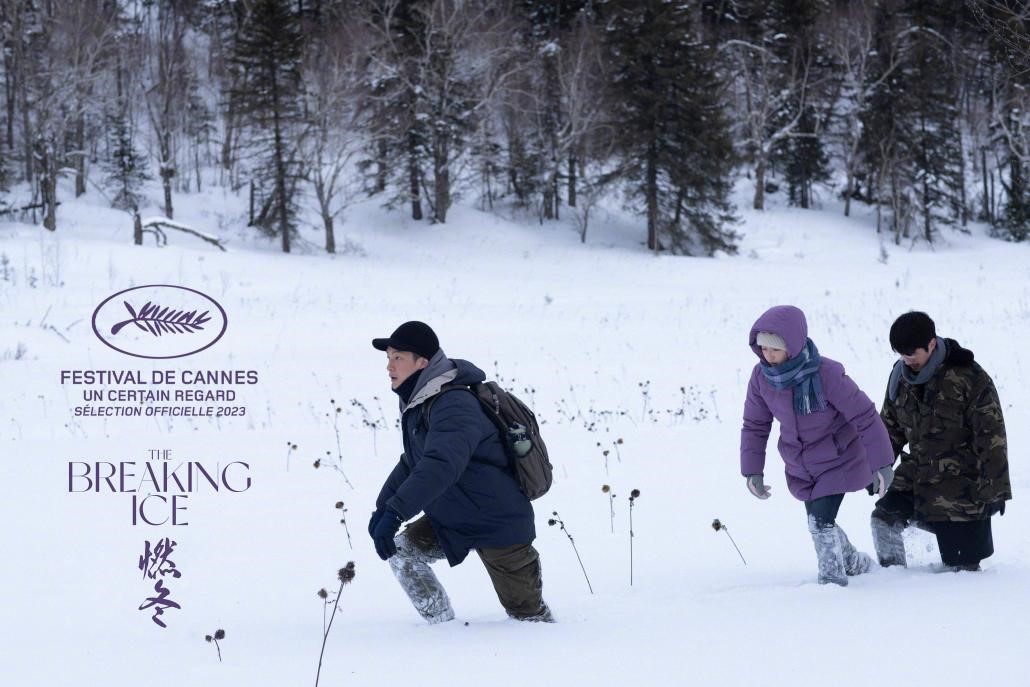
Jealousy evident in 'Threesome' movie doesn't exist between three young men
Moving the background of the story from the tropics that Chen Zheyi is familiar with to the cold regions of China, and diluting the focus on "relationships" - "Burning Winter" has become a creation of Chen Zheyi beyond his comfort zone. This is a risk, a choice after weighing the pros and cons, and a compromise.
Why do you say "compromise"? Because "Burning Winter" is a temporary creation. In the past, Chen Zheyi could spend two or three years slowly polishing the script and breaking up a relationship. There was no such time condition when creating "Burning Winter". Chen Zheyi did not shy away from this point in the interview: in July 2021, he was suddenly idle, and for about half a year, he wanted to do something and return to the creative state, so he contacted the Chinese producer Xie Meng plans to come to Northeast China to shoot a winter story. During the 14-day quarantine in early October, Chen Zheyi only wrote a two-page outline of "Burning Winter". After the quarantine period ended, he found all the actors and behind-the-scenes team one after another. After that, the film will start in Yanji in December 2021 and will be completed in early January 2022.
Although the shooting time of some films is very short, the preparation time is not short at all. In contrast, the creation of "Burning Winter" was too hasty. In Chen Zheyi's own words, it was very "flexible". The hasty creation time can reflect the great talent of the director, but it itself means a greater risk: the script may not be perfect and mature enough. Because I didn't have enough time to think about the "relationship" of the threesome, I chose to shoot "status"-the description of the character's "status" has a template for reference and a shortcut to take.
"Burning Winter" is said to be a love letter to young people born in the 90s, but Haofeng, Nana, or Han Xiao, except that they are from China and live in China, their state is the common state of Generation Z young people. If Singapore had the ice and snow of Yanji, this story could also be true in Singapore.
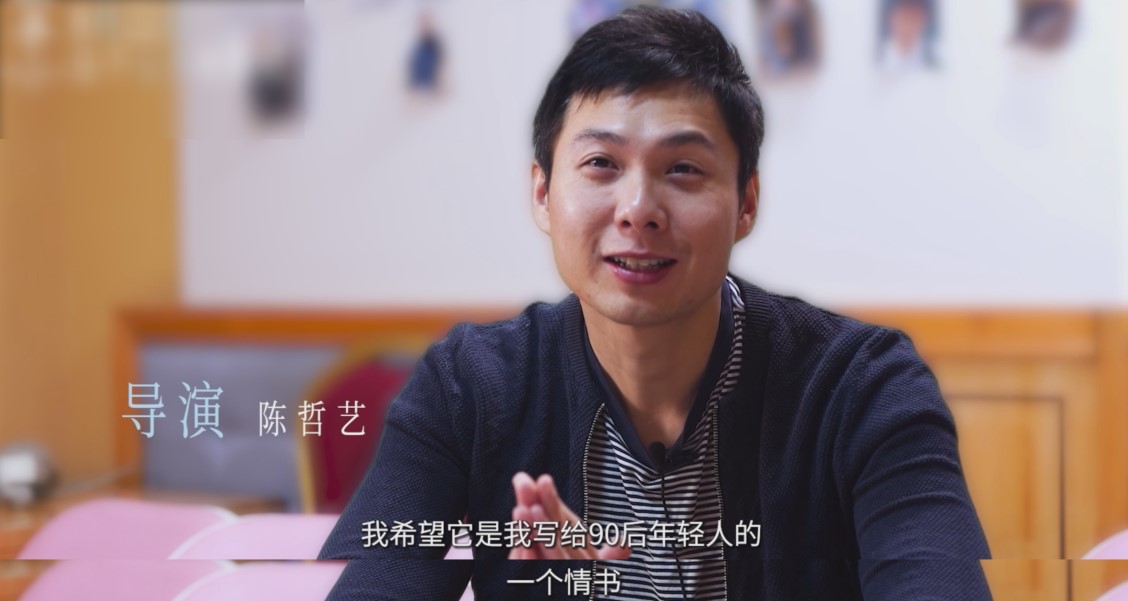
The film tries to explore a "state" of young people
Haofeng represents the kind of "excellent sheep" who study hard, get into a good university, find a good job in a big city, and live as "other people's children", but fall into great pain and feel their own alienation , I am also tired of such alienation, but I don't know how to break free. Young people like Haofeng exist in Lujiazui in Shanghai, Shenton Road in Singapore, and Wall Street in the United States—the book "Excellent Sheep" fully writes about the "Haofeng" in Wall Street.
Nana represents those people who have love and dreams, but because of force majeure, their dreams have fallen. She was a talented figure skater who had to leave the rink because of an ankle injury. Losing her dream is like taking away her soul. She is working as a tour guide like a walking dead, leaving her smile to tourists and her sadness to herself.
Han Xiao is taken as a sample of "lying flat" youth (although there seems to be some misunderstanding of "laying flat" in the movie, which will be discussed later). He didn't seem to have read much. My aunt married to Yanji and opened a restaurant. He came to Yanji from Sichuan to help my aunt's restaurant. Although he is not a lazy person, he does not spend less time lying at home and wandering outside on weekdays. His attitude towards life is more relaxed and casual.
Chen Zheyi is indeed a talented director. Although he writes such a stereotyped character, his grasp of the "state" is precise, precise and exquisite. If you just look at each state of the characters and the clips of each character individually, the movie will be well shot, whether it is Haofeng chewing ice, crying bitterly in a noisy bar, or Nana falling down several times. Tears, the erotic scenes between her and Haofeng, or every close-up of Qu Chuxiao, can make the audience feel something similar to "dust of gold powder", which is full of words and meaning. Some viewers love this movie, which is completely understandable, because many parts of the movie have the power to move people.
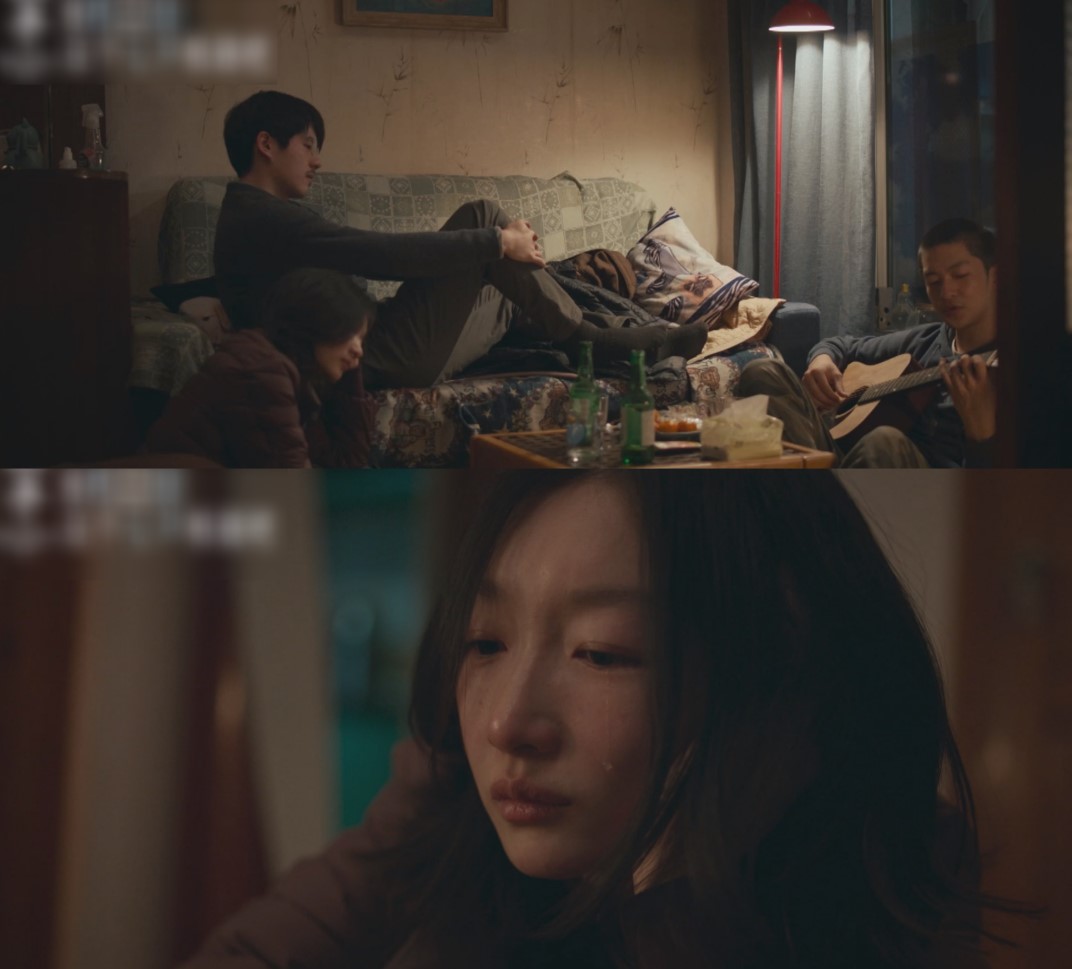
The single scenes of the movie are shot very tastefully
But when these fragments are connected together, when the "states" of the characters are connected together, many viewers will be concerned about whether the succession and transformation are traceable and reasonable and self-consistent. The place.
Why did Haofeng, who had such a tight relationship with his classmates at their classmates' wedding, get close to Nana and Han Xiao so quickly? Why did Haofeng suddenly cry bitterly in the bar? Is the lust with Nana enough to awaken his desire for life? At what moment did he decide to survive and gain the courage to go to Shanghai again?
As far as Nana is concerned, between Haofeng and Han Xiao, why did she only surrender herself to Haofeng? Did she feel that she was the same as Haofeng, and if so, when was it? The phone call she made to her family at the end of the movie, what is the opportunity for reconciliation?
The reason why the movie seems to have misunderstood "Lie Flat" is because as an audience, I don't think there is anything wrong with Han Xiao's "Lie Flat". But the film deliberately reviews "Lie Flat" from the perspective of Han Xiao's cousin. Isn't it "lying flat" if you have to go to a big city to work hard? Isn't Haofeng a victim of the meritorious concept of constant struggle? Han Xiao's attitude towards life is much more casual, but also much more brisk and free and easy-even if Nana is closer to Haofeng, he just laughs it off. Isn't this a choice to get rid of the emo state? But at the end of the movie, Haofeng arranged for Haofeng to "run away", take a dictionary, ride a motorcycle, leave his friends, and go to a distant place. The subtext questioned or denied this "laying down".
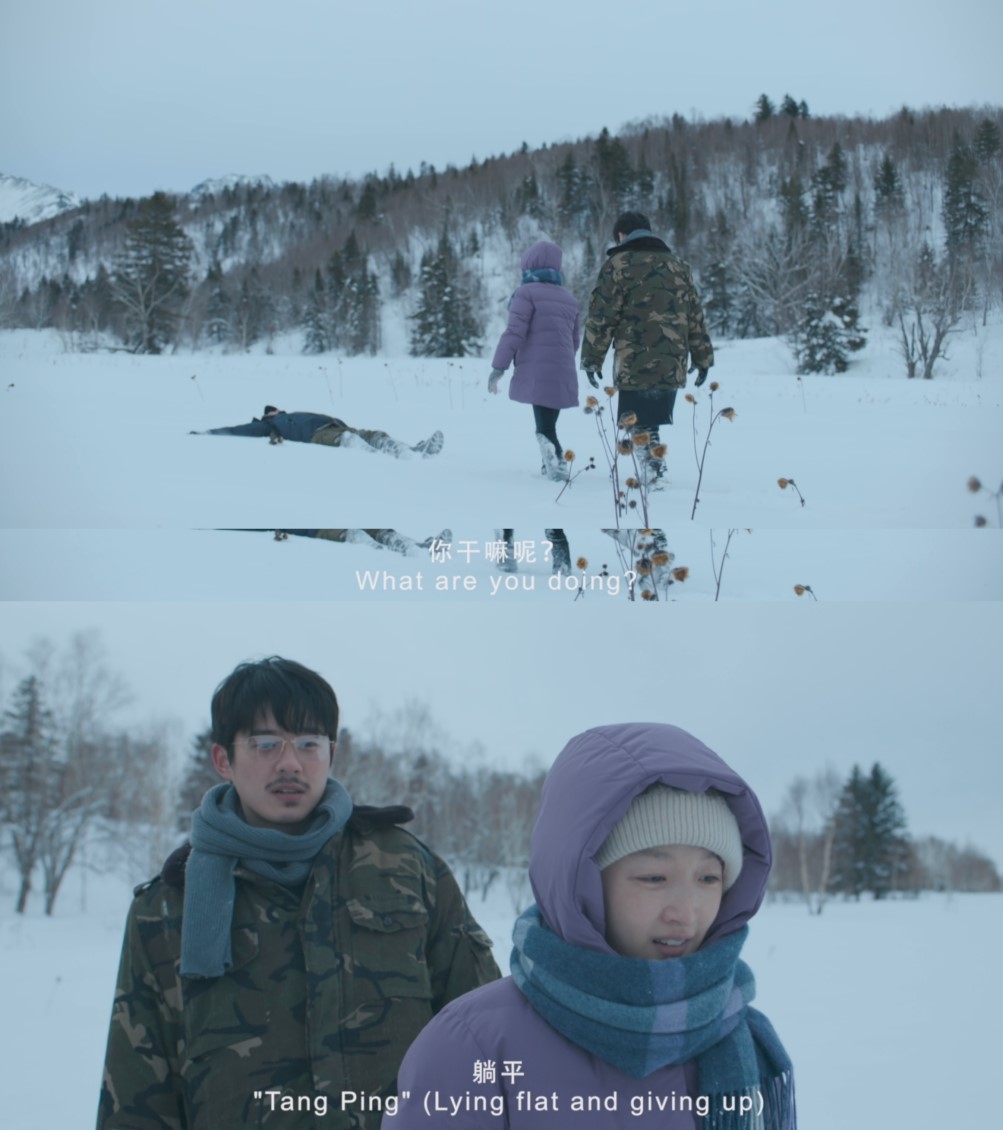
Han Xiao's "Lie Flat" is pretty good
"Burning Winter" created in the limited time has an obvious problem: each segment is more like a director who feels that a segment can be shot here after scouting the scene, so he shoots a segment. As for how the segments are related, the main creator has no time Thinking too clearly; the audience can understand the state and emotions of the characters, but they are unclear about the cause of their actions and the advancement of the "relationship"; Logical clues to follow, no exit...
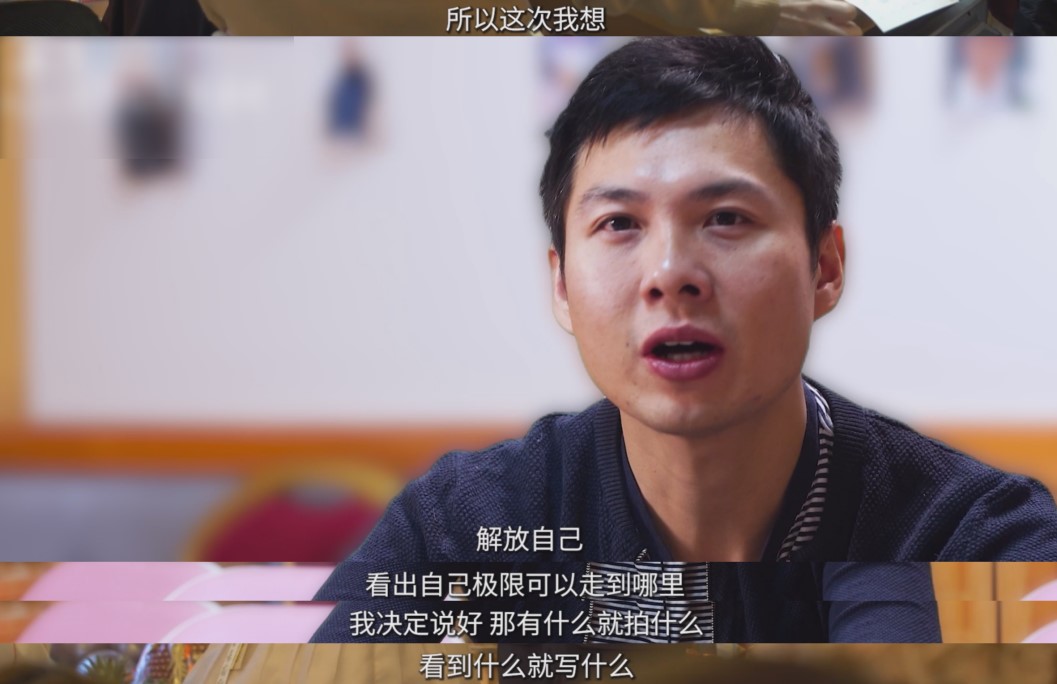
In the director's special, Chen Zheyi talked about the creation of "Burning Winter"
Therefore, the problem is not that "Burning Winter" is a literary film, but that it emphasizes state and emotion, weak plot and weak logic, so as to cover up the weakness of the text and still expose the weakness of the text.
The end of the movie is a bit rushed. The three young people meet by chance, warm each other briefly, and then go their separate ways. What has this journey brought them, or has their "relationship" changed them? unknown. It is difficult to defend with "emotions are inexplicable" and "emotions do not need to pursue logic". On the contrary, there are often "symptoms" of the times behind the "state" of characters, which just needs to be presented with careful logic. This is not something that Chen Zheyi, a foreigner, can see through in just a few months. He can only generalize it to present a common "state" of young people, which is universally applicable.
Chen Zheyi's films are often full of imagery, and "Burning Winter" is no exception. For example, the wanted criminal, the three different books selected by three people in the bookstore, the "bear girl" in the fairy tale, the bear encountered on the road to Tianchi, the Tianchi that almost arrived... The audience can make various interpretations, such as The three young men briefly acted as fugitives from life, and when the wanted criminals were arrested, does it mean that the three young men will also be captured by life in the end? Has Haofeng jumped down, and his departure really became an opportunity for Nana and Han Xiao to change?
However, if the imagery and the metaphor behind it are chaotic and not self-contained, then the complicated imagery will not only appear deliberate, but also fragmented, and cannot really become the hidden text behind the surface text of the story.
In any case, I still want to warmly welcome Chen Zheyi to come to China to shoot movies, and welcome him to come again next time. I just hope that next time I can leave more preparation time for the movie. The impromptu and hasty creation made "Burning Winter" immature and perfect, but its attention to the living conditions of young people and the capture of emo emotions still reflect the creator's precious problem awareness and unconventional artistic pursuit.


